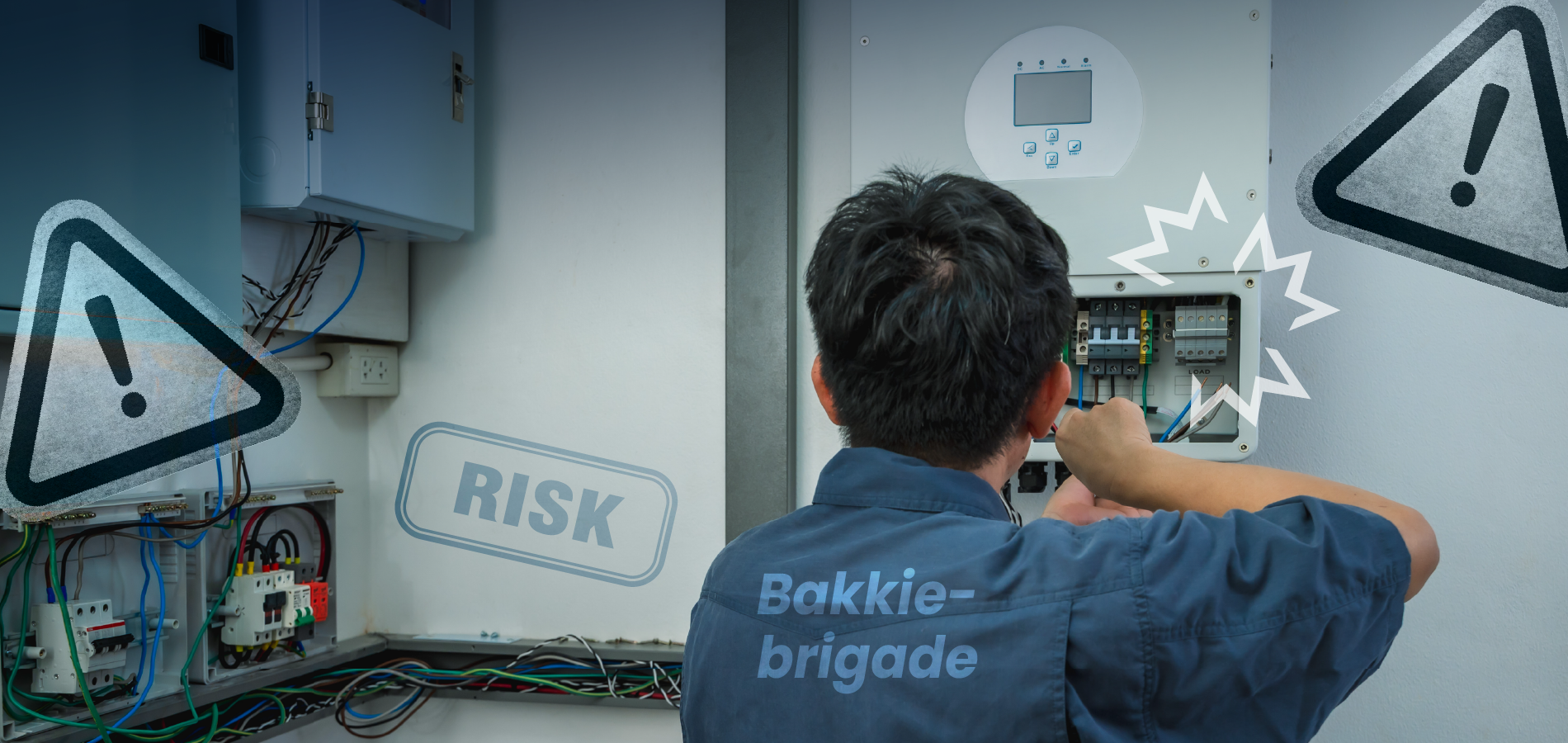The challenge is that the rush to solar over the past few years opened the door for hundreds of small installers. While this has had a generally positive impact on the sector and created jobs for many South Africans, it has also attracted unqualified installers who operate outside compliance frameworks or below national and international standards. As a result, Alumo Energy is experiencing a major surge in after-sales callouts from non-Alumo customers whose substandard systems are riddled with faults that carry serious risks.
Our teams regularly encounter cables jammed into the same trunking system, live wires without proper conduits, and inverters that were never approved under National Rationalised Specifications Association of South Africa (NRS) standards. These faults significantly reduce efficiency and can create fire or electrocution hazards or even lead to complete system failures.
When a “bakkie-brigade” installer vanishes after installation, families and businesses are left with no support. They are then forced to pay again just to make their systems safe and compliant.

Well-maintained, routinely serviced solar systems last decades
Owning a solar system is like owning a car – even the most basic model needs regular servicing to remain reliable. A solar system requires the same care:
- Panels should be cleaned to prevent dust and soiling that reduce efficiency and cause long-term damage.
- Inverters need regular checks to ensure compliance.
- Cabling, connectors, and fuses must be inspected to ensure safety and compliance.
- System performance should be monitored to detect underperformance early.
- Mounting frames, roof fixings, and bolts must be checked to remain secure and weather-resistant.
- Batteries should be tested for charge cycles, capacity, and temperature stability.
- Smart monitoring systems and optimisers require software updates to stay effective.
/file/dailymaverick/wp-content/uploads/2025/09/in-article-2.png)
This level of upkeep demands continuous training as solar technology evolves, with new inverters, battery chemistries, and monitoring systems entering the market each year. Larger, more established installers and service providers have the resources to keep technicians up to date with developments in ways that single-person installers simply cannot.
A professional after-sales service provider like Alumo can also conduct thermal scans that detect hot spots or loose connections before they become dangerous. Thermal cameras are expensive, and seldom form part of a small-scale installer’s toolkit.
Finally, warranties can offer a valuable safety net for homeowners, but they are only as reliable as the company behind them. Established providers with ties to direct manufacturers can process claims quickly, replace equipment when needed, and keep systems running without lengthy delays. Alumo Energy allows their customers a battery or inverter loan unit, ensuring households and businesses stay powered ensuring their customers don’t experience any downtime.

A solar installation is one of the largest investments a household will make, and requires proper maintenance to deliver maximum value or return on investment. Ultimately, informal or inexperienced installers with no proven track record typically cannot provide the certainty and the aftercare homeowners need. DM




